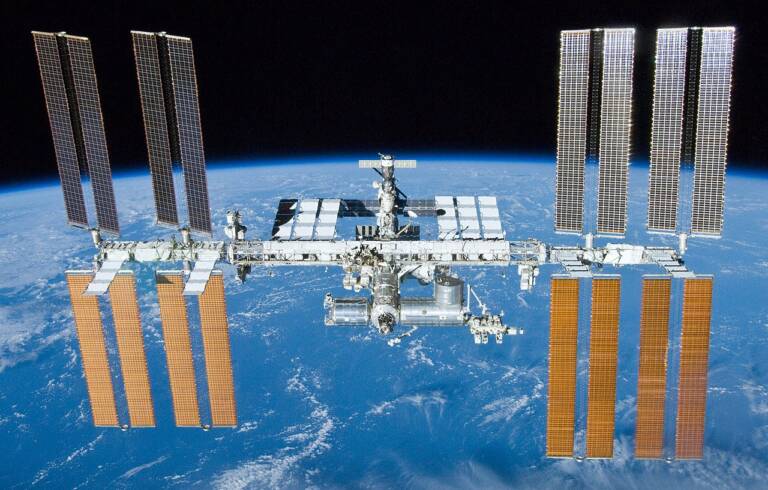“Space” nickel-hydrogen battery threatens the dominance of lithium

Space exploration can lead to indirect technological advances, in other sectors, of great impact. Another relatively new example could come from US company EnerVenue.
The company is developing long-lasting, sustainable battery technology for terrestrial use, based on the engineering and chemistry that NASA has used for more than 40 years to power the International Space Station, the Hubble Space Telescope and more .
The company believes that its technology can replace traditional batteries in the long term. “Our technology is much safer than lithium-ion,” EnerVenue CEO Jorg Heinemann said in an interview with IE.
Take advantage of the longevity and life of space batteries
The idea behind EnerVenue's technology comes from work done by Stanford University professor Yi Cui, who is also the startup's president and lead technology adviser. Cui discovered how to adapt NASA's long-life nickel-hydrogen battery technology for viable use on Earth, using materials that dramatically reduce costs.
NASA's nickel-hydrogen battery technology is well-suited for space because it can withstand harsh conditions, including rapidly changing extreme temperatures. The batteries are safe and last a very long time. They are also fully recyclable, produce no toxic waste and their chemistry poses no fire hazard.
The only glaring problem when it comes to bringing the technology to Earth is that it's incredibly expensive to produce.
However, EnerVenue has developed a method to produce metal-hydrogen batteries at low cost and has seen strong demand from utilities and energy developers.
“EnerVenue's Energy Storage Vessels are currently in use at utility test sites throughout the United States,” Heinemann explained to IE. These sites serve to validate EnerVenue's claims and are precursors to network-scale integration.” In parallel, EnerVenue is selling into industrial markets, including customers in marine operations, oil and gas, mining and as a diesel replacement in island applications.”
The company also recently announced that it will open a one million square foot Gigafactory in the United States. The Gigafactory will produce its Energy Storage Vessels batteries, capable of more than 30,000 charge cycles each. These batteries can be stored in racks and are capable of operating for up to 30 years.
Nickel-hydrogen versus lithium ion
In the near term, EnerVenue believes its technology could help spread intermittent renewable energy, including solar and wind power.
“Storage plays a key role in ensuring that excess generation is captured and then used when needed, resulting in a less carbon-intensive energy mix and a more stable energy supply,” Heinemann said.
This strategy sees EnerVenue adopting a similar approach to Costa Rican company Ad Astra, which also leverages the expertise of its founder, former Space Shuttle astronaut Franklin Chang Díaz. Longer term, though, the company believes its technology can enter people's homes, providing another excellent example of how space technologies can become ubiquitous.
“Our technology is much safer than lithium-ion,” explained Heinemann, “offers far greater flexibility in terms of discharge frequency and duration, and lasts more than three times longer while maintaining almost all of its original capacity".
“In the long term, EnerVenue also sees the application of its technology in the residential sector,” he continued. “With attention to the potential fire hazards posed by lithium-ion batteries, we believe there is a significant market for a non-flammable household battery that has a lifespan exceeding 30 years and can be installed in otherwise unused parts. of the structure, such as crawl spaces and attics".
It's a tall order, but if EnerVenue can deliver on that promise, it could go a long way toward mitigating the well-documented safety, sustainability, and ethical issues facing lithium-ion batteries.

Thanks to our Telegram channel you can stay updated on the publication of new articles from Economic Scenarios.
The article "Space" nickel-hydrogen battery threatens the dominance of lithium comes from Scenari Economics .
This is a machine translation of a post published on Scenari Economici at the URL https://scenarieconomici.it/batteria-spaziale-nichel-idrogeno-minaccia-il-predominio-del-litio2/ on Thu, 18 May 2023 19:47:00 +0000.
